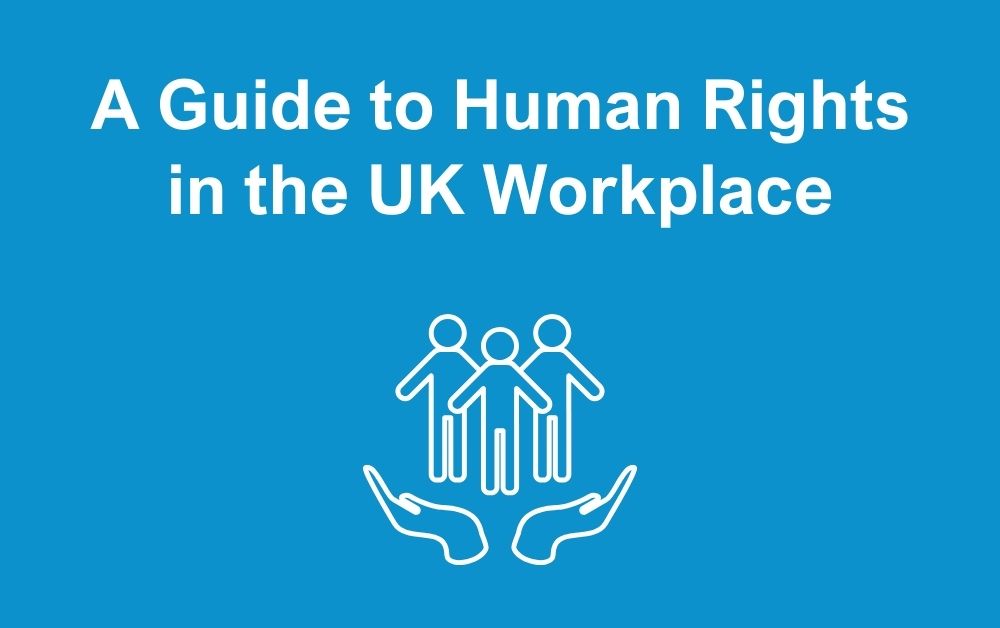The European Convention on Human Rights was created in the aftermath of World War II, and designed to prevent the atrocities which occurred from ever being allowed to take place again.
Employee monitoring is legal but must comply with all human rights legislation.
The Act covers a range of fundamental human rights such as the right not to be tortured, the right to life, prohibition of slavery and the right to liberty.
However, in addition to these core and essentials rights of the individual, the Act also covers some rights which aren’t as overtly life-threatening, but are nevertheless still important and must be protected.
We take a look at how the Human Rights Act fits into the workplace.
Private life
Although employees may have a responsibility to who they work for, they’re also individuals with a private and family life too.
One of the rights under the Act states that “A person has the right to respect for their private and family life, their home and their correspondence.”
An employer can, of course, monitor their staff for health, safety and performance reasons, but they can’t discriminate on the basis of what they find. This would contravene another fundamental right which states “Prohibition of discrimination. In the application of the Convention rights, a person has the right not to be treated differently because of their race, religion, sex, political views or any other personal status, unless this can be justified objectively. Everyone must have equal access to Convention rights, whatever their status.”
If an employer is going to be monitoring communications, they must in most circumstances inform the individual this will be occurring. This includes emails, telephone calls, data, images and internet access.
The individual has the right to see at any time the information which is being held about them.
Your employer is also not permitted to monitor you everywhere; employees are allowed a degree of privacy although increased use of smartphones is blurring the boundaries and is yet to be tested properly in court. However, as an example, it would be considered unreasonable for employers to monitor their employees in the toilet.
There are a number of other rights under the Act, which the employer must not breach if they discover information as a result of their monitoring. This include:
- The right to freedom of expression
- The right to freedom of thought, conscience and religion
- The freedom of assembly and association
- The right to be a member of a trade union, to attend gatherings and to campaign to improve your workplace benefits, provided that the health and safety of the public are not placed at risk.
Searches and drug testing
An employer is allowed to select a group of employees for drug testing, but not another group, if the nature of their work justifies heightened controls, drivers compared to office workers for example.
Strict conditions apply to drug testing in the workplace
However, if there is a random drug testing policy in place, an employer is required to ensure that it is truly random, and must be able to demonstrate this is the case. If an individual is deliberately singled out for testing under a so-called random policy, this would breach their rights under the Act.
A worker cannot be made to take a random drugs test but they can be subjected to disciplinary action for refusing, providing the employer has good grounds for testing. This cannot be on an individual basis.
Employers are also permitted to carry out searches on their employees but they must have a written policy on this. All searches must respect the individual’s privacy, be carried out by a member of the same sex and a witness must be present.
Conclusion
Technically the Human Rights Act (HRA) only applies directly to those workers in the public sector who can sue their employer if they breach their rights. However because the HRA has also been absorbed by general UK employment law, the rights in practice extend to all employees.
The area of human rights is a difficult one and can be a real balancing act when placed alongside the need to monitor an individual’s performance, particularly where there are concerns. However, you can’t simply start monitoring emails or phone calls without warning the individual that you are doing so, because any evidence you collect may be unusable in the event of a tribunal. Ensure you refer to the HRA at all times, in conjunction with written company policy; this ensures employees will be treated fairly and with respect and if you do need to take any action, you can be certain you will have acted compliantly.
If you’re looking for more tips on employee rights, read 10 Employee Rights You Should Know article by Manak Solicitors
For more information contact us at The HR Booth on 01383 668178 or email us at info@thehrbooth.co.uk



